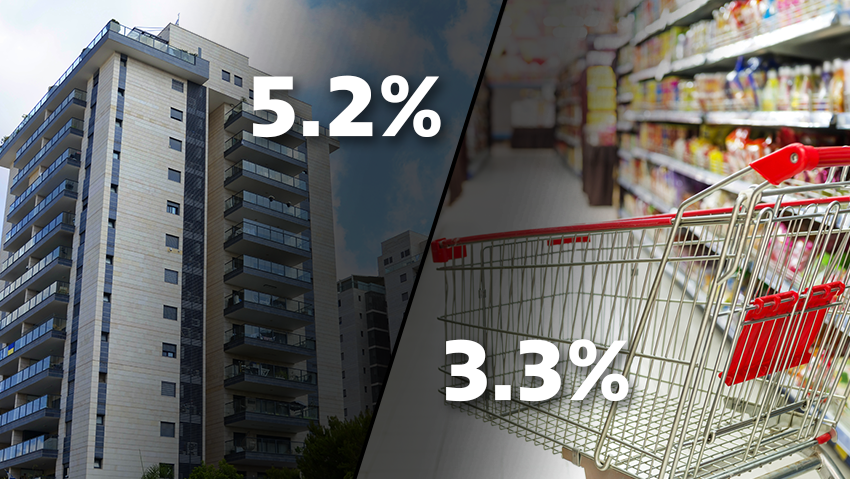Getting your Trinity Audio player ready...
International credit rating agency Moody’s downgraded Israel’s credit rating late on Friday by two levels, from A2 to Baa1, citing severe economic concerns and the government’s inadequate response to the escalating war expenses.
The rare move marks the first time the international credit rating agency has lowered Israel’s rating by more than one notch.
4 View gallery


Finance Minister Bezalel Smotrich and Prime Minister Benjamin Netanyahu
(Photo: Reuters)
The decision, which was accompanied by a severe report on Israel’s economic condition, cited the government’s inadequate response to the country’s deteriorating financial situation. The agency also assigned a negative outlook to the new rating.
The downgrade represents a significant blow to Israel's credit standing and comes with harsh criticism directed at the Israeli government for failing to address economic challenges effectively.
Moody’s noted in its report that although Finance Minister Bezalel Smotrich recently outlined a 2025 budget plan targeting a deficit of up to 4%, the budget formulation process has been delayed for around two months. It remains uncertain whether the proposed austerity measures, including a freeze on public sector wages, adjustments to tax brackets and changes to benefits, will be implemented as suggested.
Set to miss deficit target
Moody’s has projected that Israel’s budget deficit will reach 6% in 2024, and will exceed the 6.6% target this year, rising to 7.5%. The international credit rating agency attributed the sharp increase to slow economic growth and substantial spending on reservists and northern evacuees amid the ongoing conflict.
The agency also forecasted a significant rise in Israel’s debt-to-GDP ratio, expected to jump to 70%, a stark contrast to the pre-war trajectory aimed at reducing it to 50%.
Senior economic officials expressed shock at the downgrade, calling it a severe crisis. “A double downgrade is a real disaster,” said one high-ranking source. Another noted, “It will take many years to repair the damage caused by the government’s lack of response.”
The downgrade followed unsuccessful efforts by the Prime Minister’s Office and the Finance Ministry to convince Moody’s economists that the Israeli government is committed to drastically reducing the deficit to 4%. However, the agency expressed doubts about the feasibility of such a plan, given the expanding war and its massive associated costs.
Accountant General calls decision 'excessive and unjustified'
Accountant General Yali Rothenberg criticized Moody’s decision to downgrade the country’s credit rating, calling it “excessive and unjustified.” Rothenberg argued that the downgrade does not align with Israel’s fiscal and macroeconomic data, despite the economic strain caused by the ongoing war on multiple fronts.
“It is clear that the war is taking a toll on Israel’s economy, but there is no justification for the rating downgrade,” Rothenberg said. He emphasized the need for decisive action to approve the 2025 state budget, which he said must rebuild fiscal reserves, maintain a maximum deficit of 4% of GDP and set Israel back on a path to reducing its debt-to-GDP ratio.
Rothenberg added that the budget should also focus on growth engines, investment in infrastructure, addressing social needs and meeting Israel’s security demands. “The Israeli economy is strong, diverse and has deep and liquid financial markets. We will successfully navigate the economic implications of the war to restore security to the nation.”
This is the second time Moody’s has downgraded Israel’s credit rating this year, following a previous cut from A2 in February.
In its report, Moody’s warned that Israel’s economic situation could worsen if the conflict intensifies and extends, possibly leading to another downgrade. The agency cited a significant increase in geopolitical risk, now at a “very high” level, with substantial negative implications for Israel’s creditworthiness in both the short and long term. It also noted a decline in the effectiveness of Israel’s institutions and governance in managing these challenges.
Moody’s outlined concerns about long-term economic damage, including potential labor market constraints if military service is extended from 32 to 36 months, continued restrictions on Palestinian workers entering Israel, particularly in construction, and a prolonged investment freeze due to elevated business risks.
Meanwhile, sources told Ynet that Standard & Poor’s, the world’s largest credit rating agency, will publish its next report in November, and is also expected to downgrade Israel’s credit rating for the second time this year.
What is a credit rating?
A credit rating assesses the ability of countries, companies or individuals to repay loans in the future. Rating agencies for countries, much like banks for private individuals, evaluate the financial history, equity, asset status and other economic indicators of a nation, as well as the extent of its existing liabilities.
Who cares about this?
Primarily, those who plan to lend money to these countries or invest in them. Rating agencies essentially evaluate the risks involved and the ability of nations to repay loans to their lenders.
What does it mean for investors?
The higher the credit rating of the entity or country being assessed, the lower the yield it needs to offer investors, as it indicates lower risk. For example, those lending to the United States or Germany will demand much lower interest rates than those lending to countries like Peru. For a nation in severe distress, such as Syria or North/South Sudan, it’s doubtful there would be any lenders willing to take the risk at all.
What does this mean in practical terms?
Israel is already paying interest rates of half a percentage point to a full point more on its loans than just a few months ago, and these rates are expected to rise further. These higher interest rates are likely to impact everyone: loans for businesses in Israel will become more expensive, costs that companies will likely pass on to consumers.
Additionally, a government burdened with higher loan costs will have to reduce its spending on public services. As a result, there could be cuts to welfare, healthcare, education and other sectors, affecting citizens as soon as the next budget cycle.




